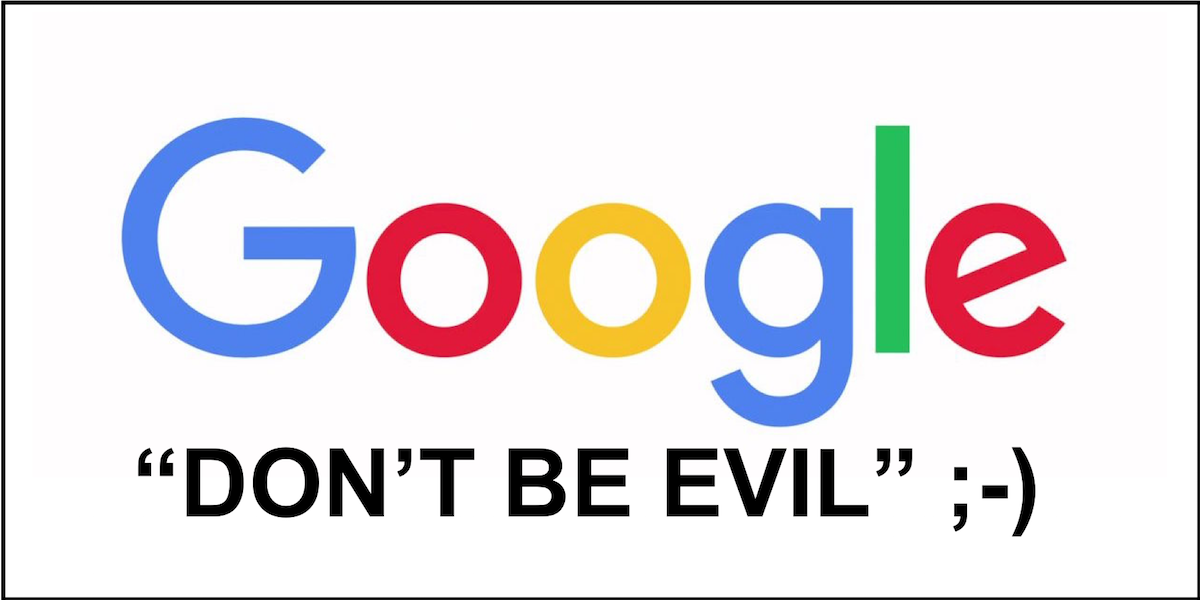
One of Twitter’s more annoying qualities is the way it encourages people to make ludicrous claims about things they know nothing about. Next thing you know a complete myth is all over the Twitterverse. Take antitrust law, for example.
I’m forever hearing about how Big Tech giants are monopolies or some form of —opoly. How Google and Facebook dominate digital advertising. How Amazon just keeps gobbling up one market after another. And how Apple, well, is Apple.
Never mind how nobody ever complains about Microsoft anymore – the software giant is bigger than all of them and the only corporation that’s remained in the top 10 in terms of market cap for the past 30 years.
The thing is, there’s absolutely nothing wrong with big companies dominating industries. Monopolies are actually perfectly legal in the U.S. So are duopolies and oligopolies.
The problem is when companies use monopoly power to restrain competition and harm consumers, usually by raising prices and/or reducing quality . That’s when U.S. antitrust laws kick in.
The Federal Trade Commission Act provides a bit more latitude than the Sherman Act, but the feds still have to demonstrate unfair competition that harms consumers to prevail in court. And therein lies the rub.
Federal prosecutors can’t just throw offending executives in prison – they have to sue and win. Easier said than done. The Justice Department and FTC spent years and millions going after Microsoft and Intel in the 2000s with only weak settlements to show for it.
If customers choose to run most of their ads on Google and Facebook, that’s totally fine under the law, as it should be. It’s only illegal if tech giants act individually or together to restrict competition and raise prices.
Probably the most brilliant historical example of a big company circumventing antitrust laws in the U.S. is Amazon. Amazon undercuts competitors to dominate markets. Not only does that practice not harm consumers, they benefit from it. No harm, no foul.
So why the big backlash against Big Tech that has FAANG stocks reeling and everyone and his brother suddenly thinking Silicon Valley has become evil?
In two words, politics and privacy.
Much of the backlash is related to the role Facebook may or may not have played in Russia’s attempts to manipulate the 2016 election and Trump’s victory. On the flip-side are revelations about Google’s left-leaning leadership team and the impact that may or may not have on search results.
Is Silicon Valley liberal? Well, duh. But there is absolutely no evidence of that bias influencing their products or materially impacting the 2016 or midterm election.
This whole sordid mess seems to stem from Democrats being incensed that Hillary Clinton lost the election and Republicans pushing back in kind. In other words, both sides claiming foul against the other. Welcome to modern day partisan politics where nothing gets done but a whole lot of finger-pointing.
As for privacy, it’s clear that neither Facebook nor Google could give a rat’s behind about user data, since their vast stores of user information – they probably know more about you than you do – is their principal advantage over other advertising platforms.
Funny thing is, most of that stuff is user controllable if people really cared enough and took the time, which they don’t.
Bottom line: As Gertrude Stein famously said, there’s no there there. Big Tech may be big, but it isn’t bad. At least not according to the law or anything that really matters.